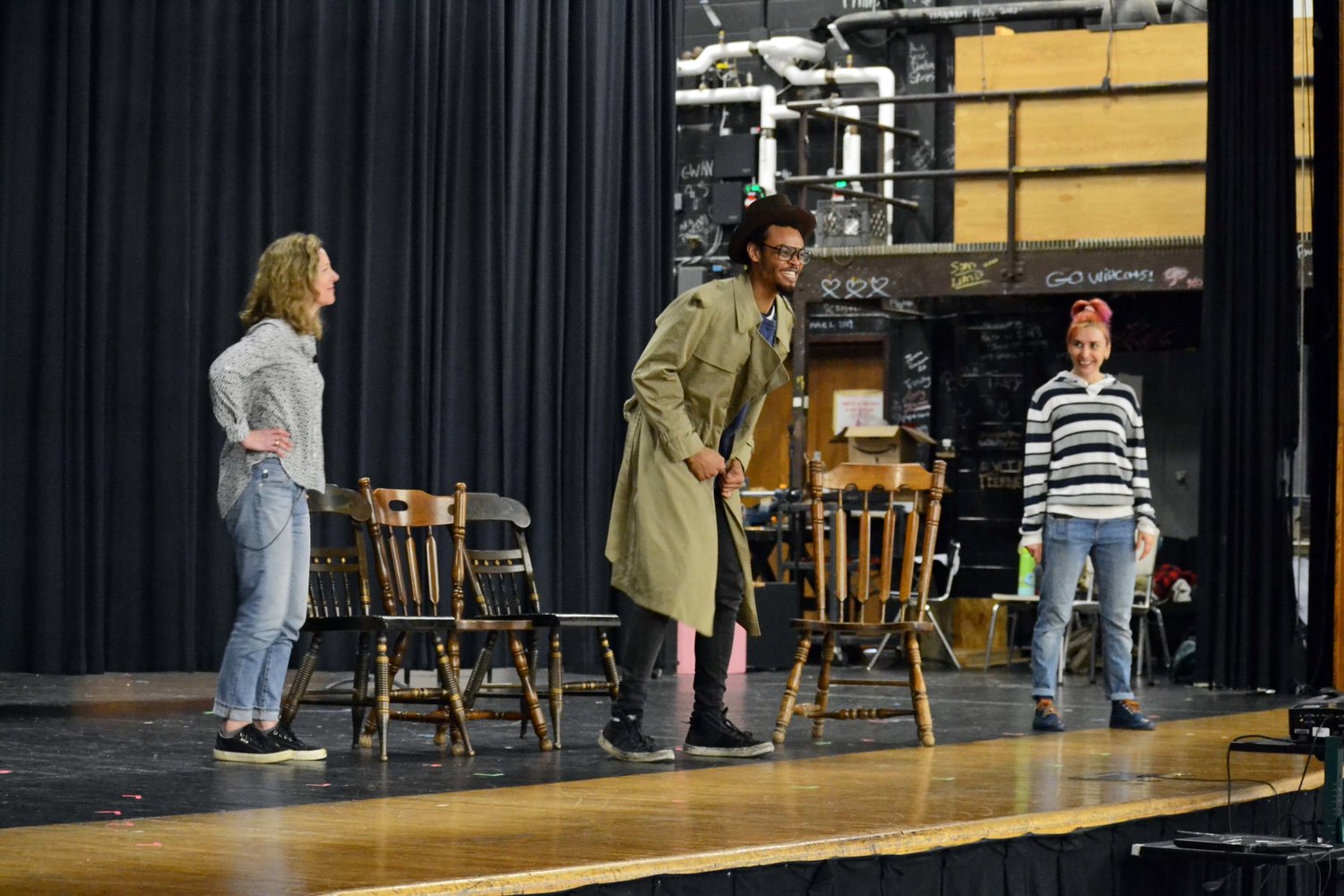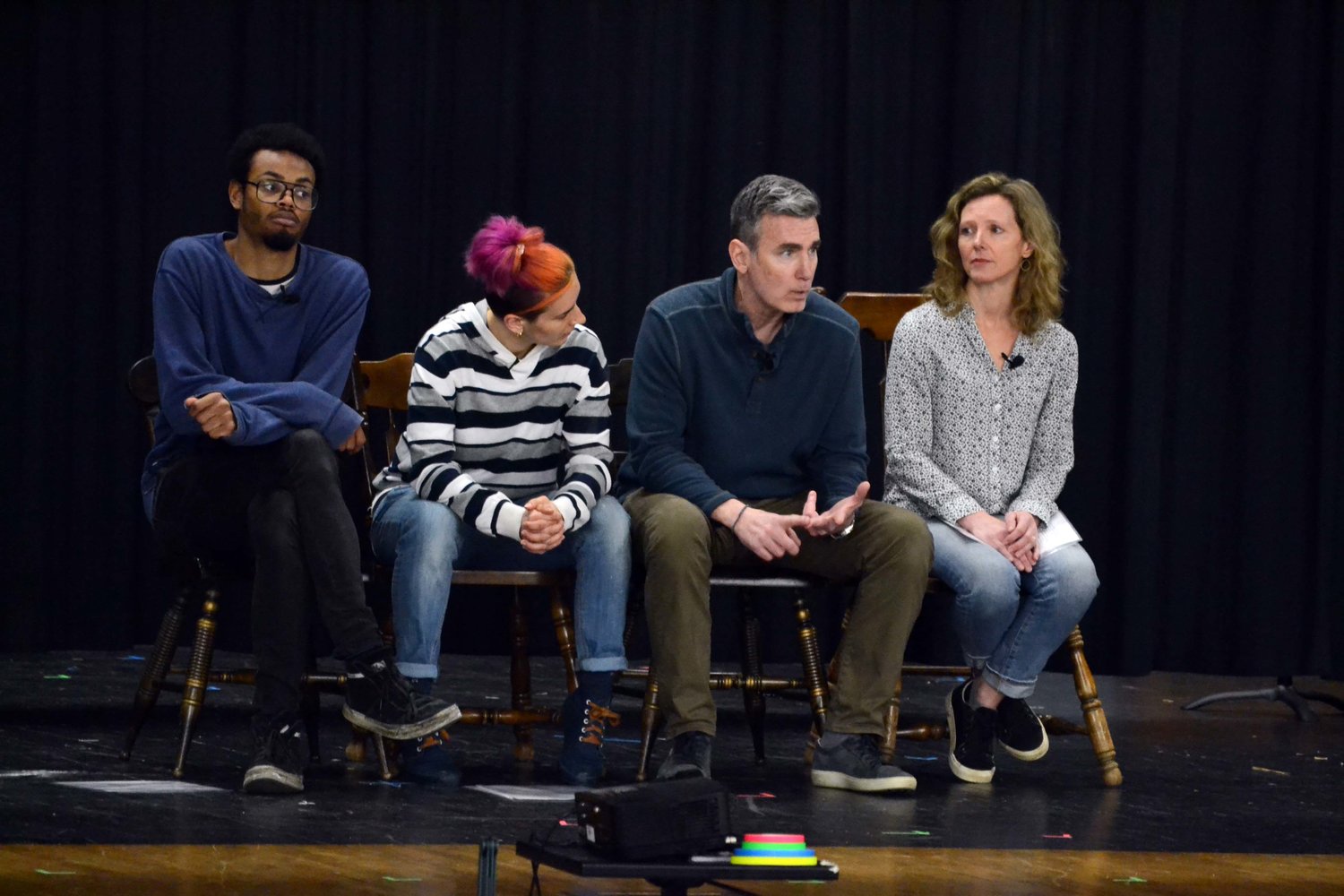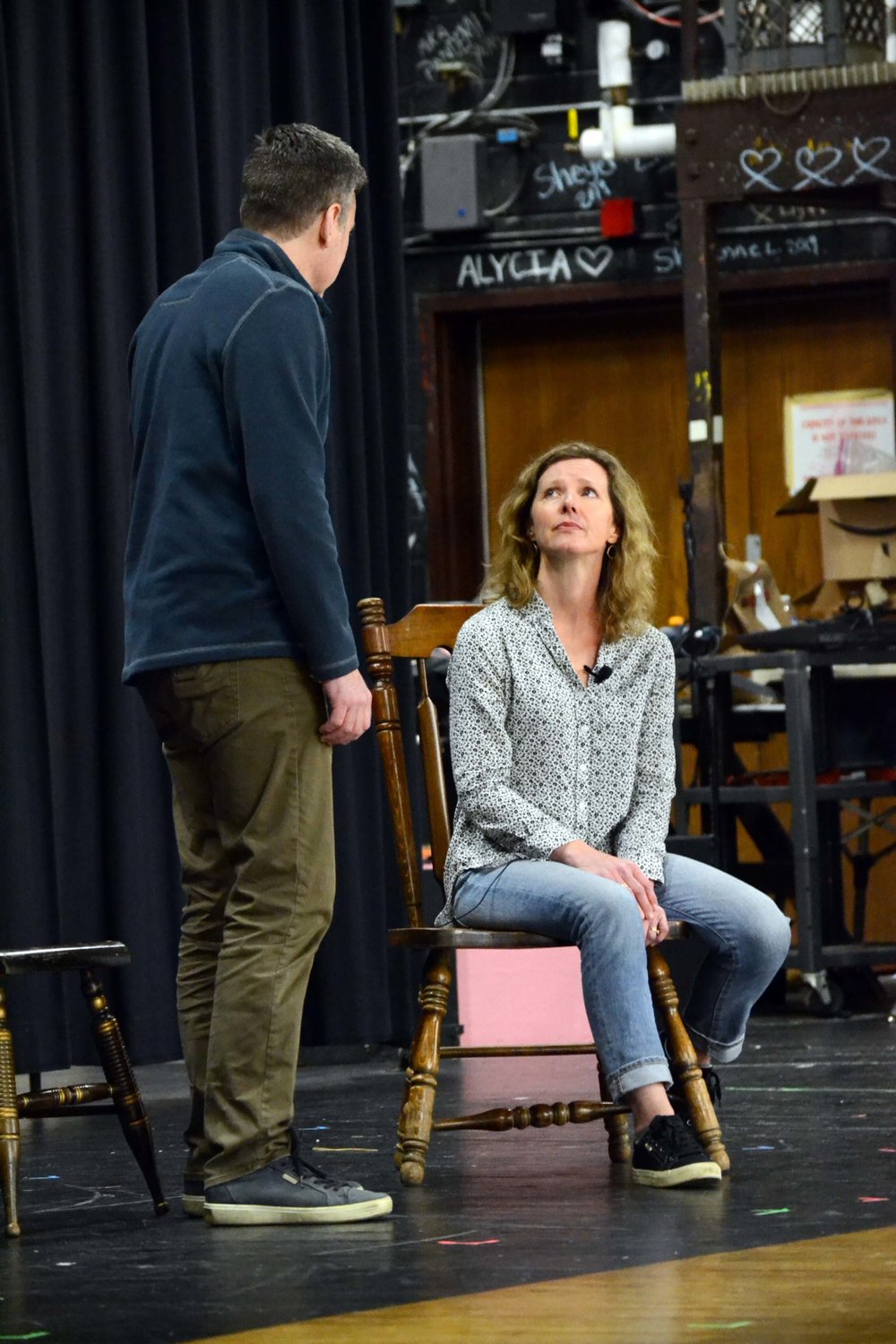2nd Act presents authentic picture of addiction, celebrates recovery
During their performance of “Ill Never Do That,” the actors portraying a typical American family — three of which are in long-term recovery from alcohol addiction themselves — simultaneously painted a compassionate and authentic experience of how substance use disorder can affect an entire family, and how the road to recovery is anything but straightforward.
This item is available in full to subscribers.
Please log in to continue |
Register to post eventsIf you'd like to post an event to our calendar, you can create a free account by clicking here. Note that free accounts do not have access to our subscriber-only content. |
Day pass subscribers
Are you a day pass subscriber who needs to log in? Click here to continue.
2nd Act presents authentic picture of addiction, celebrates recovery
A theatrical performance is usually a unique opportunity for the cast and audience to enjoy a moment of time outside the realm of reality — indulging in creative make believe to tell a story, send a message or just provide a means of escape from everyday life.
But 2nd Act is not your usual theater company, and the performance they gave to middle and high school students at Kickemuit Middle School and Mt. Hope High School this past Thursday was not your usual moment of theater.
During their performance of “Ill Never Do That,” the actors portraying a typical American family — three of which are in long-term recovery from alcohol addiction themselves — simultaneously painted a compassionate and authentic experience of how substance use disorder can affect an entire family, and how the road to recovery is anything but straightforward.
Instead of helping people escape their reality, the performance provided a means for teenagers and young adults to recognize substance abuse in their own lives, giving them the tools to talk about it openly and, ideally, open up avenues for support where and when it is needed.
De-stigmatizing addiction
2nd Act — which was created by the merging of Rhode Island’s Creating Outreach About Addiction Support Together (COAAST) and Improbable Players, an educational theater company with satellites in Cleveland, Boston and New York — strives to “change the way people and communities respond to the impact of substance use through theatre and drama therapy.”
They believe that storytelling is a powerful tool that can lead to real change. Through collaborating with local community-based organizations, such as the Warren Prevention Coalition (who brought them to Bristol Warren with a sponsorship from the Rhode Island Department of Behavioral Healthcare, Developmental Disabilities & Hospitals), the company hopes to stimulate productive conversations in schools about substance use disorder, and open roads to a path towards recovery. The actors on stage have actually been through the trials and tribulations they perform on stage, which adds a needed layer of authenticity.
“Sometimes, especially with kids, you feel like ‘Are they really listening?’ But then you always have kids go up afterwards and they want to share their stories,” said Tanya Anderson-Martin, who portrays Angela, the mom experiencing a worsening addiction to alcohol in the play. “There’s something about actors, especially some of the younger actors, where they just want to come up and tell you everything. It gives a safe space for them to say ‘We can talk about this, and this is a person who has been through it.’”
A real depiction of substance use disorder
A big theme in the play is about how the family — consisting of a mom (Angela), dad (Michael), daughter (Natalie) and her younger brother (Jay) — is initially very resistant to the very idea that Angela might have a problem with drinking, despite the signs of her addiction becoming more and more apparent as her condition worsens.
When Natalie, eventually talks to a guidance counselor about how her mother upset her by passing out drunk in front of her friends one night, Michael, reprimands her for airing the family’s “dirty laundry,” and says that the issue should be handled internally as a family. However, even after finding out that Jay has turned to drugs as a means of coping with the family’s issues and the mother’s increasingly apparent absence, Michael tries hard to marginalize the issue and avoid confronting it.
Finally, the family can avoid the issue no longer as Angela suffers a fall down a flight of stairs while intoxicated. Michael finally agrees to seek treatment for the mom and is receptive to the idea of undergoing family therapy to discuss their issues. Although Jay is initially against the idea and moves out of the house, he eventually reunites with his family at the end to symbolize a feeling of hope, and that the family is going to help in Angela’s fight against addiction together.
Art imitates real life
Perhaps the most impactful moment of the show came after the performance itself was over, when the cast hosted a question and answer session with the kids in the audience. Each cast member would introduce themselves, and for those in recovery, they would disclose how long they had been sober. Each member received an unprompted round of applause from the audience after their announcement of their sobriety.
As opposed to other anti-drug programs that have sought to demonize drug use and those who use drugs, 2nd Act strives to humanize drug abuse as an illness, and promotes compassion for those afflicted by it. The actors each shared their stories of being trapped in alcoholism, or knowing someone who had.
“I grew up in a household where it was accepted. I had my first drink and first drunk at age 12 and from that point forward, I liked to think I was functioning. But I was a binge drinker, and I always drank to get drunk,” said Paul Noonan, who portrayed the father, Michael. “By age 44 I had literally lost everything in my life. My children, my wife, my home, my job of 17 years, friends, family, really everything — including myself.”
Noonan eventually found salvation through Alcoholics Anonymous (AA), and has been able to pick up the pieces of his life, maintaining sobriety for over seven years to date. Rachel Tondreault, who portrays the daughter, Natalie, shares a similar story.
“I didn’t know I had a problem until way down the line,” she said, adding that she started drinking when she was 11. “I was always drinking to get drunk but I thought I was drinking to have a good time. And then slowly, as I got older, I was drinking to escape pain, and that was a big change for me.”
Tondreault, too, found salvation through AA, and hasn’t touched alcohol since March of 2017.
“It felt like that scene at the end of an action movie where the Tom Cruise character has finally gotten the thing he’s been searching for the whole movie and he’s running down the hall and everybody is after him and there’s some kind of garage door that is slowly lowering and he just barely sneaks out at the last moment, and you don’t think he’s going to get there, but he does,” she said. “That was me getting sober. I don’t think I could do it again, and that’s one of the reasons that I haven’t relapsed and stayed in recovery.”
At the end of the Q&A, a student in the audience asked a simple but profound question: How has recovery affected your friend group? Noonan and Tondreault had sage advice to share.
“I have lost friends due to my recovery. I’ve lost family members…My cousin who was my best friend growing up wouldn’t accept my recovery and we don’t speak anymore,” Tondreault said. “There are friends in my life that still drink now that I can’t hang out with because they don’t respect me. It definitely got me to realize who loves me and who respects me, so I can keep those people in my life.”
“When the clarity comes back, you’re going to realize that there were people in your life at the time that you don’t want in your life anymore,” added Noonan, adding that he was fortunate to have good friends and a good support network. “The people that don’t accept it, I don’t bother with them.”
Providing resources for those who need them
In addition to providing a safe forum to discuss substance use disorder, the play also introduced kids to George O’Toole from the East Bay Recovery Center, who encouraged any students with concerns for themselves or their peers to attend a youth group program at their Warren location (31 Railroad Ave.).
“Stop in if you’re looking for a safe place to talk, with no judgment,” he said.
For Tondreault, performing with 2nd Act has unlocked a true passion of being a positive role model for kids across the region. A group of Mt. Hope High School students congregated at the front of the auditorium to talk with the actors following the conclusion of the performance.
“I love talking to kids,” she said. “I think that being in conversation with teenagers about issues that I know they’re having — that they might not be talking to each other about — is probably the most rewarding thing. I wish that I had the same kind of resources when I was that age.”
For a comprehensive list of recovery and treatment services regarding substance use disorders, visit WarrenPrevention.com/resources or call the Warren Prevention Coalition at (401) 245-7387.











